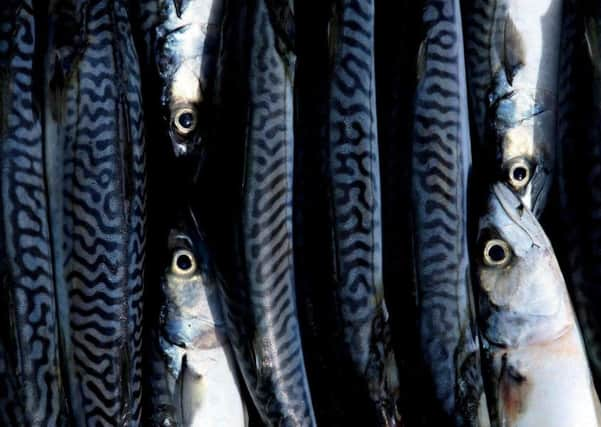All hail the million- pound mackerel


A rather strange choice, one might think, but on further reflection it soon becomes clear that the mackerel is a perfect subject for the design because it is such an important fish to Scotland. Yes, the humble mackerel, the fish many of us will remember from our childhood days catching by the bucketload from the end of pier with a string of feathers, is one of the pillars of the Scottish economy.
It is quite a remarkable transformation, too, because up until the 1970s the mackerel wasn’t really of much commercial importance. Indeed, in times long past, the mackerel was not revered at all as a fish for the table, as witnessed in Shakespeare’s Henry IV, “….you may buy land now as cheap as stinking mackerel”.
Advertisement
Hide AdAdvertisement
Hide AdBut how things have changed, for mackerel is now Scotland’s most important fish catch in terms of both value and volume, and widely recognised as being one of the tastiest types of fish around. It would seem that Shakespeare’s culinary dismissal of the mackerel was to prove well wide of the mark.
In the 1980s and early 1990s much of the Scottish mackerel catch was sold direct to Eastern European factory ships (klondykers) anchored off the coast. But in more recent times mackerel has become a much sought-after fish in the global marketplace, with modern state-of-the-art processingplants in Shetland and the north-east of Scotland now handling the majority of the catch.
Last year, mackerel was worth £131 million to the Scottish fleet and accounted for around 30 per cent of the total value of Scottish landings. Add onto that the value of the catch once it is processed – mackerel exports alone are worth around £115m per year and support a workforce of around 2,000 people – then it is all too apparent just how important mackerel is.
Scottish mackerel for overseas markets is destined for places such as Japan, Poland, China, Nigeria, the Baltic states and the Ukraine. It is a growing market and our processors, aided by government support agencies, are continually looking to develop this sector further.
A key part of this success lies in its versatility for processing. The fish landed all tend to be of a uniform size, and the firm flesh, which is rich in heart-healthy omega 3 fatty acids, is ideal for freezing, smoking and canning. Fresh mackerel tastes pretty amazing too, and with the season now just starting, it is widely available in supermarkets and fishmongers. There are few fish that can rival a barbecued mackerel for flavour.
But the really good news about our precious mackerel resource is its sustainability. The fishery is carefully managed through international agreement and the fishermen themselves often adopt their own initiatives to ensure the stock remains healthy for future generations.
Scottish-caught mackerel carries the prestigious Marine Stewardship Council eco-label – an independent and internationally recognised rubberstamp of the sustainability of the stock and the sound environmental practices adopted by our fishing fleet.
Furthermore, working under initiatives pioneered by the Scottish Pelagic Sustainability Group, mackerel vessels are using additional conservation techniques. For example, Scottish mackerel fishermen use hand lines or small-scale jigging machines to take a sample from a shoal to determine the size of the fish before shooting their nets. This prevents the capture of small, unmarketable fish, ensuring that only the targeted size is taken. The mackerel fishery is also a very clean one in that there is very little bycatch of other fish species.
Advertisement
Hide AdAdvertisement
Hide AdOf course, mackerel is a resource that is not just important for our economy and food security, it is also a vital element of the marine food chain and is a fish preyed upon widely by seabirds and cetaceans. Fishermen recognise this ecological importance, which is another reason it is so crucial to ensure the stock is fished sustainably. Indeed, our mackerel fishermen particularly enjoy watching orcas approaching close to their boats to feed upon the abundant mackerel spilling from their nets.
Scotland is a rich country in terms of natural resources, and mackerel is right at the top as one of our most important. When the oil and gas run out, our sustainable fisheries – such as mackerel – will still be there, supplying a nutritious food resource and making a significant contribution to the well-being of Scotland plc.
John Goodlad, chairman of the Scottish Pelagic Sustainability Group, www.scottishpelagicsg.org